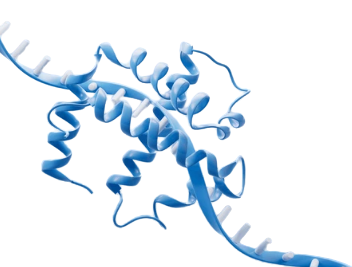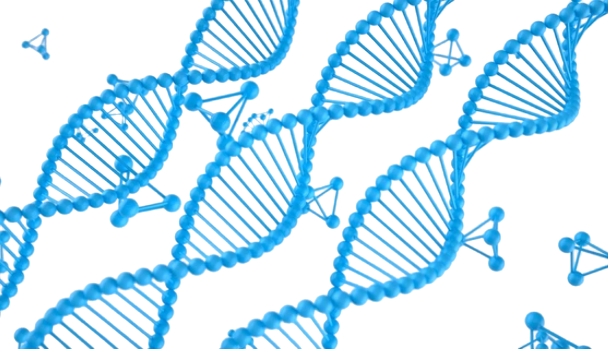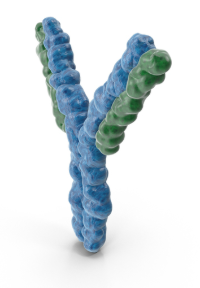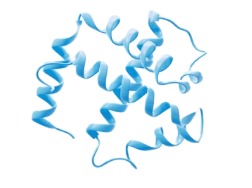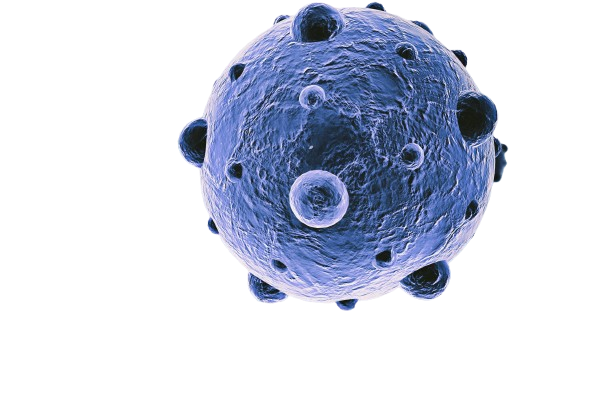Recombinant Proteins
Recombinant proteins are lab-produced proteins made by introducing a specific gene into a host system, like bacteria, yeast, or mammalian cells. These tools are used everywhere diagnostics, research assays, therapeutic development, growth factors, enzymes, or even in vaccine design. What most labs care about is quality: purity, correct folding, biological activity, and batch consistency. Good recombinant proteins help reduce variability in experiments, act reliably in ELISA, Western blot, or cell-based assays, and make downstream results more predictable. When proteins are engineered well, labs avoid frustrating failures and get reproducible data much faster.

Antibody Fragments
Recombinant proteins are made by inserting a gene into a host system so the protein can be produced in the lab. They show up in all kinds of work cell culture, enzyme studies, antibody production, or diagnostic assays. For example, many labs use them in ELISA, Western blot, or simple activity tests. What matters is that the protein is pure and active. If it’s folded the right way and consistent from batch to batch, experiments run smoother and results are easier to trust.
Antigens
Antigens are proteins that the immune system can recognize. In the lab, recombinant antigens are made in host cells and then purified for use. You often see them in ELISA, diagnostic kits, vaccine research, or when raising antibodies. What matters is specificity and purity if the antigen is clean and well-folded, the test works well and results are more reliable. Also, when antigen batches behave consistently, fewer surprises happen during experiments.
Chaperones
Chaperones are proteins that keep other proteins from misfolding. They stop clumps from forming and help chains fold into the right shape. In practice, labs often add them during recombinant protein production to improve solubility and function. For example, using active chaperones can mean more usable protein and less waste. What really matters is that they stay stable and work with different types of proteins. When they do, experiments run smoother and failed batches are less common.
Cytokines and Growth Factors
Cytokines and growth factors are proteins that send signals between cells. They tell cells when to grow, divide, or start an immune response. In practice, labs use them in culture work, for example to guide stem cells, test immune activity, or model disease. What matters most is that they stay active and consistent. If they’re pure, folded the right way, and low in endotoxin, results are easier to trust. Stable proteins mean fewer failed assays and cleaner data.
Enzymes
Enzymes speed up reactions in the lab. Recombinant forms are made so they’re easier to produce and keep consistent. You’ll find them in PCR, restriction digests, ligations, or cleanup steps. For example, a stable enzyme means fewer repeats and less wasted sample. What matters most is activity and purity. If the enzyme does its job every time, experiments run smoother and data is easier to trust.
Epigenetics Proteins
Epigenetics proteins are tools lab folks use to study how genes are turned on or off—without changing the DNA itself. These include writers, erasers, and readers of chromatin marks (like methylation, acetylation, etc.), purified so you can test how they work. In many experiments they help answer questions about development, disease, aging, or response to environment. What really matters? Their activity, their specificity, and how consistently they behave from batch to batch. When they do, experiments give cleaner data, fewer surprises, and better insights into gene regulation.
Fusion Proteins
Fusion proteins are made by joining parts of different proteins into one. Labs use them for tags, purification, tracking, or to combine two activities in a single tool. For example, fluorescent reporters or Fc-fusions are common. What matters most is that both parts still work. If the domains fold right and the linkers don’t get in the way, the protein stays stable and active. When that happens, experiments run smoother and less time is wasted.
Heat Shock Proteins (HSPs)
Heat shock proteins are helpers inside cells that keep proteins from misfolding, especially under stress. They help rescue or refold damaged proteins, prevent harmful clumps, and maintain protein stability. Labs use recombinant HSPs (like Hsp70, Hsp90, Hsp27 etc.) to study stress responses, folding problems, or to improve yields of tricky proteins. What matters most is that they stay active, stable, and consistent across batches. When HSPs do their job well, experiments are more reliable and less time is lost fixing misfolding errors.
Hormones
Hormones are signaling molecules that regulate body functions. In labs, recombinant hormones are made and purified so scientists can test their activity or measure their effects. You’ll see them used in cell culture, screening assays, or receptor binding studies. What matters is that they are pure, active, and consistent. If a hormone works every time and doesn’t vary between batches, results are much more reliable.
Immunoglobulins
Immunoglobulins are antibodies (or parts of antibodies) used in many lab experiments. These proteins can bind specifically to antigens. In labs, recombinant immunoglobulins show up in ELISA, Western blots, flow cytometry, or as standards/controls. What’s most important is binding strength, purity, and consistency. When batches behave alike, you get better reproducibility and fewer weird results.
Membrane Proteins
Membrane proteins are proteins that sit in or on cell membranes. They might span the membrane one or more times, or attach by lipid anchors. Labs use recombinant membrane proteins for studying receptors, ion channels, transporters, or other membrane-bound functions. What’s hard (and what matters) is keeping them folded, stable, and able to behave like they do in their natural environment. Purity, correct insertion into membranes, and batch consistency are key. When these are good, data is more reliable, experiments clearer, and fewer surprises crop up.
Protein Standards and Controls
Protein standards and controls are well-characterized proteins used to check that your assays are working right. You use them in ELISA, Western blot, or other detection assays to ensure size, concentration, or binding behavior is reliable. These proteins don’t always need to be bioactive, they just need known properties. It helps when batches match each other, and when purity is high. When you have good standards and controls, you spot errors early and trust your data more.
Recombinant Antibodies
Recombinant antibodies are lab-made binding proteins used to recognize specific targets. You’ll find many types: monoclonal, chimeric, different isotypes, produced in systems like E. coli, yeast, or mammalian cells. They are used in ELISA, flow cytometry, immunohistochemistry, Western blot, and many diagnostic or research assays. What counts most is specificity, binding strength, and batch consistency. When an antibody is specific and reliable, experiments are cleaner and results more trustworthy.
Recombinant Peptides
Recombinant peptides are short chains of amino acids made in living cells, not by chemical synthesis. Labs use them when small peptides are hard or costly to make synthetically—especially longer ones or ones needing special modifications. You’ll see them in bioactivity assays, screening, therapeutic testing, and as custom research tools. What matters are expression levels, purity, correct folding (if needed), and consistency batch-to-batch. Good recombinant peptides cut down on cost, reduce failed runs, and give clearer, more trustworthy data.
Recombinant Toxins
Recombinant toxins are proteins engineered from toxin genes but produced safely in lab systems. Labs use them to study interaction with cells, test neutralizing antibodies, or model pathogen effects. What’s tricky is to keep them functional yet safe. Purity, correct folding, and activity are essential. When recombinant toxins are consistent across batches, experiments are more reproducible and risk is easier to manage.
Signal Transduction Proteins
Signal transduction proteins carry signals inside cells. They take external triggers—like a growth factor, hormone, or receptor activation—and pass the message through a chain of molecules. In labs, these proteins are used to study how cells respond: activation of kinases, adaptor proteins, second messengers, etc. What matters most is that they’re specific, active, and behave reliably. When a protein does its job well, experiments give clear results and fewer surprises.
Stem Cell Markers
Stem cell markers are proteins used to recognize and track stem or progenitor cells. They include things like CD34, SOX2, OCT4, NANOG, and others. Labs use these markers in flow cytometry, immunostaining, and functional assays to see if a cell is still “stem-like,” or differentiating. What really matters is specificity—does the marker bind only what you expect? Also, purity, correct folding, and reliable performance across batches. When these are good, results are easier to interpret, and you avoid chasing false positives or confusing signals.
Structural Proteins
Structural proteins are parts of cells or tissues that give shape, strength, or support. Think of collagen, elastin, keratin, cytoskeleton components—proteins that hold things together. Labs use recombinant structural proteins when making scaffolds, extracellular matrix models, or studying how cells interact with their physical environment. What labs care most about is correct folding, stability, and mechanical properties. If the protein mimics its natural form well, experiments are more meaningful and fewer artifacts show up.
Viral Proteins
Viral proteins are those made from virus genes, often used in lab settings to study infection, immune response, or vaccine design. You’ll find things like viral structural proteins, non-structural/regulatory proteins, or envelope glycoproteins in this category. Labs use them for assays, antibody tests, or for making virus-like particles. What really matters is that they’re properly folded, pure, and behave like the native viral versions. When viral proteins are consistent and correctly made, results are more reliable and experiments behave more like real-world biology.











